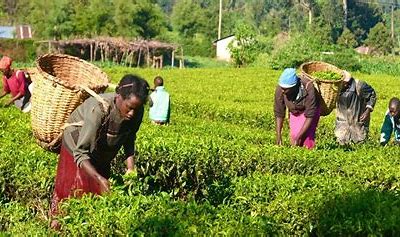How Nigeria’s Mega Deal with Brazil Will Revolutionize Agriculture and Boost Farmers
How Nigeria’s Mega Deal with Brazil Will Revolutionize Agriculture and Boost Farmers
By Achimi Muktar
Nigeria’s agricultural sector is on the verge of a massive transformation following the signing of a historic $1.1 billion agreement with Brazil under the Green Imperative Project (GIP). This groundbreaking initiative, signed on Monday at the Presidential Villa in Abuja, is set to increase food production, drive sustainable farming, and attract private-sector investment like never before.
With agriculture contributing significantly to Nigeria’s economy but still plagued by inefficiencies, the GIP offers a game-changing strategy to tackle food insecurity, modernize farming, and empower small-scale farmers by linking them directly to the agricultural value chain.
The Boldest Agricultural Investment in Africa
The GIP is Africa’s largest agricultural initiative, prioritizing sustainable, low-carbon farming practices. Initially launched with a Memorandum of Understanding (MoU) in 2018, the project has now entered the commercial phase. It is part of a broader $4.3 billion expansion plan, alongside a $2.5 billion Joint Bilateral Strategy (JBS) finalized in Brazil earlier this year during President Bola Ahmed Tinubu’s visit.
Vice President Kashim Shettima, speaking at the signing ceremony, described the agreement as a "milestone in Nigeria’s journey towards agricultural modernization."
Shettima: A Turning Point for Food Security and Economic Growth
Shettima emphasized that the deal aligns perfectly with President Tinubu’s eight-point agenda, which focuses on job creation, economic diversification, and food security.
"As this administration addresses food security challenges, it is imperative for us to leverage existing initiatives like the GIP to drive economic growth and enhance investor confidence," he stated.
He stressed that the private-sector-driven nature of the project ensures small-scale farmers will be integrated into the country’s evolving agricultural ecosystem, thereby boosting productivity and long-term sustainability.
Brazil’s Commitment: A Game-Changer for Nigerian Farmers
Brazil’s Ambassador to Nigeria, Carlos Garcete, reaffirmed his country’s dedication to transforming Nigeria’s agricultural landscape. He highlighted that the agreement followed seven years of negotiations and successful fundraising from private and regional development banks.
"This ambitious $1.1 billion project will facilitate the importation of crucial agricultural equipment, including tractors and spare parts, with assembly plants located in Nigeria," Garcete revealed.
The ambassador also assured farmers that local maintenance and repair centers would be established to ensure efficient servicing of equipment.
"In the event of a tractor breakdown, repairs can be conducted in Nigeria by personnel trained under the GIP framework," he added.
State Governors and Ministers Applaud the Deal
Jigawa State Governor, Umar Namadi, described the agreement as "historic", acknowledging its importance at the sub-national level.
"For us, agriculture is the backbone of our economy. This initiative demonstrates a strong commitment from the highest levels of government to improving food production," he said.
Benue State Governor, Hyacinth Alia, whose state is widely regarded as Nigeria’s "food basket", expressed excitement over the potential impact.
"Benue State does not only hold the basket but the food and its surpluses for the nation," he affirmed.
Similarly, Minister of Foreign Affairs, Ambassador Yusuf Tuggar, hailed the agreement as a landmark moment for South-South cooperation between Nigeria and Brazil, drawing parallels between Brazil’s successful agricultural transformation and Nigeria’s ambitions.
A New Dawn for Nigerian Agriculture?
With the commercial phase of the Green Imperative Project now in motion, experts believe that Nigeria is on track to achieving agricultural self-sufficiency. The initiative is expected to:
✅ Enhance food production through advanced mechanized farming
✅ Provide small-scale farmers with access to global agricultural value chains
✅ Boost job creation through equipment assembly and maintenance plants
✅ Strengthen investor confidence in Nigeria’s agricultural sector
The big question now is: Will this billion-dollar project finally unlock Nigeria’s agricultural potential and lift millions of farmers out of poverty?
Time will tell, but one thing is certain—a revolution is coming, and Nigeria’s farmers are at the heart of it.





















